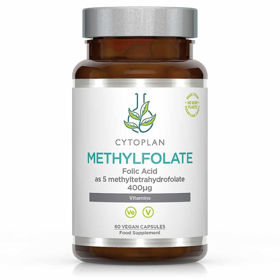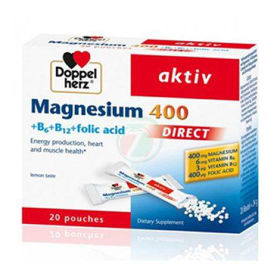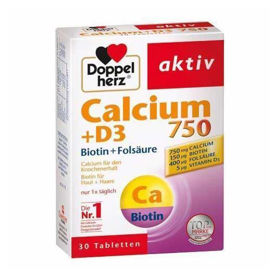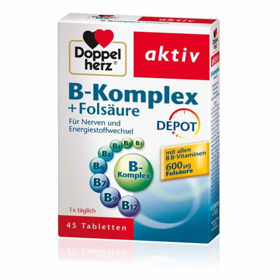Customer question:
In what forms are electrolytes available? Anonymous customer's question
Pharmacist's answer:
Electrolyte is available in different forms:
- Tablets are available at most pharmacies and are usually used by athletes or people with special health conditions
- Powders: can be mixed with water and are often preferred by athletes or those involved in high-intensity activities.
- Electrolyte and sports drinks: these are designed to replenish electrolytes lost during physical activity.
- Oral rehydration salts: these are specially designed for rehydration, especially in cases of severe diarrhea or cholera. They contain a precise mixture of sodium, glucose, and other electrolytes that help with rapid rehydration.
- IV solutions: in clinical settings, electrolytes may be given intravenously. Typical solutions include saline (salt) and Ringer's lactate solution, which contain specific ratios of electrolytes.
- Gels: These are popular among endurance athletes and offer a quick energy source in addition to electrolytes.
- Capsules: these types of capsules, used by some athletes, can be taken with water to replenish electrolytes quickly.
- Effervescent tablets: these are tablets that bubble when added to water, turning into an electrolyte-rich drink.
Where can I buy electrolytes?
Electrolytes are available for purchase at various locations:
- Grocery Stores: You can find natural sources of electrolytes and commercial sports drinks at most grocery stores.
- Pharmacies/Drugstores: electrolyte tablets, powders, and solutions are usually found here. They also often offer oral rehydration salts (ORS) and other over-the-counter electrolyte supplements.
- Health food stores: You can find organic or natural versions of electrolyte drinks, powders, and tablets in these stores.
- Online Retailers: Online health supplement retailers usually offer various electrolyte products. You can find different brands, forms (tablets, powders, drinks, etc.), and types (for athletes, medical use, etc.).
- Sports Stores: Many sporting goods stores offer electrolyte tablets, powders, and drinks specifically designed for athletes.
- Fitness centers/gyms: some gyms and fitness centers have shops or vending machines where you can buy electrolyte drinks or gels, especially those designed for intense exercise.
- Hospitals/clinics: in cases of clinical or severe dehydration, electrolytes can be given intravenously. Of course, this is under medical supervision.
Are electrolytes intended to hydrate the body?
Electrolytes do not directly hydrate the body but play a vital role in its hydration process. Electrolytes help balance the amount of water in and out of cells, tissues, and organs. They regulate the movement of water molecules through cell membranes and ensure that the right amount of water is present in different body parts.
Electrolytes, especially sodium, potassium, and chloride, help maintain fluid balance between the intracellular (inside the cells) and extracellular (outside the cells) environments. This balance is crucial for the proper functioning of cells.
Sweating, you lose water and electrolytes, especially sodium and potassium. Just replacing lost water without replenishing lost electrolytes can lead to an electrolyte imbalance that can cause various problems, including muscle cramps and more severe conditions such as hyponatremia (low sodium in the blood). Therefore, for adequate rehydration, especially after intense physical activity or illness, it is essential to restore the level of water and electrolytes.
When electrolytes are taken with water and sugars (as in many sports drinks or oral rehydration salts), they can increase the gut's ability to absorb water, leading to more effective rehydration than drinking water alone. This principle is fundamental in treating conditions such as severe diarrhea, where rapid replacement of water and electrolytes is crucial.
While electrolytes are not inherently "hydrating" in providing water to the body, they are critical to maintaining and restoring proper hydration levels.
Customer question:
What is the difference between folate and folic acid? Anonymous customer's question
Pharmacist's answer:
Folate and folic acid are terms often used interchangeably but refer to different forms of vitamin B9. The distinction between forms becomes crucial in discussions of complementarity. Women of childbearing age need adequate vitamin B9, either in the form of folate or folic acid, as this helps prevent neural tube defects in the fetus.
Here is the breakdown:
Folate: this is the natural form of vitamin B9 found in a variety of foods. Leafy green vegetables, legumes, seeds, and liver are exceptionally high in folate. The body uses folate to make DNA and other genetic material and helps with cell division.
Folic acid: This is a synthetic form of vitamin B9 that is used in dietary supplements and added to fortified foods such as cereals, flour, bread, pasta, and rice. Folic acid is more stable than natural folate, so it is preferred in supplements and fortified foods. When ingested, the body converts folic acid into the active form of vitamin B9, 5-methyltetrahydrofolate (5-MTHF or L-methylfolate).
Why is folic acid so essential in pregnancy?
Folic acid (or folate in its natural form) is a B vitamin that plays a crucial role in DNA synthesis and repair, cell division, and red blood cell formation. During pregnancy, its importance increases even more due to the rapid cell division and growth during fetal development.
One of the most essential reasons folic acid is recommended before and during early pregnancy is its role in preventing neural tube defects (NTDs). These severe congenital disabilities affect the brain (anencephaly) and the spine (spina bifida). Ensuring adequate folic acid intake can significantly reduce the risk of these defects. The neural tube forms and closes in the early weeks of pregnancy, often before many women realize they are pregnant, so it is essential to start taking supplements before conception.
Folic acid also plays a role in DNA synthesis and replication. As the fetus proliferates, the need for DNA synthesis is high, which requires a more excellent supply of folic acid. Folic acid helps in the formation of red blood cells. This is important to prevent anemia, especially during pregnancy, when blood volume increases to supply the growing fetus with oxygen and nutrients.
The rapid growth of the placenta and fetus requires constant cell division, for which folic acid is crucial. Folic acid also plays a role in the synthesis of non-essential amino acids. Some studies show that folic acid may help reduce the risk of other congenital disabilities, such as cleft lip and palate and certain heart defects.
Given its importance, many health organizations recommend that women of childbearing age and those trying to conceive take a daily folic acid supplement. In addition, many countries have fortified staple foods such as cereal and bread with folic acid to ensure a higher intake among the population, significantly reducing neural tube defects.
Can folic acid be bought at a pharmacy?
Yes, folic acid supplements can be bought at pharmacies, over the counter, and sometimes with a prescription. Over-the-counter folic acid supplements are usually available in various dosages, with the most common dosage being 400 micrograms (mcg) per pill, which is often recommended for most women of childbearing age who can conceive.
Interesting reading: Olje 10 lekarna
Interesting reading: Electroliti lekarna












 Facebook
Facebook
 Instagram
Instagram
 info@moja-lekarna.com
info@moja-lekarna.com

